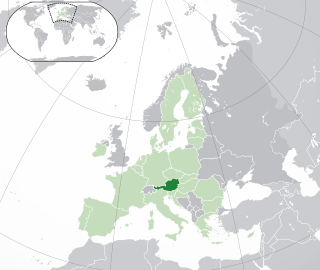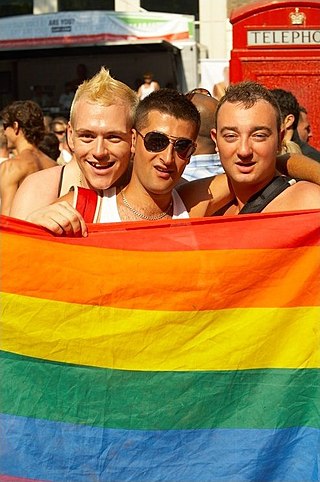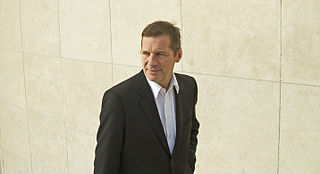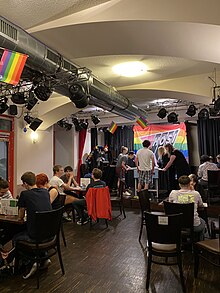
The Sydney Gay and Lesbian Mardi Gras or Sydney Mardi Gras is an event in Sydney, New South Wales attended by hundreds of thousands of people from around Australia and overseas. One of the largest LGBT festivals in the world, Mardi Gras is the largest Pride event in Oceania. It includes a variety of events such as the Sydney Mardi Gras Parade and Party, Bondi Beach Drag Races, Harbour Party, the academic discussion panel Queer Thinking, Mardi Gras Film Festival, as well as Fair Day, which attracts 70,000 people to Victoria Park, Sydney.

Lesbian, gay, bisexual, and transgender (LGBT) people in Belarus face significant challenges not experienced by non-LGBT residents. Although same-sex sexual activity is legal in Belarus, gay and lesbian rights in the country are otherwise severely limited and homosexuality remains highly stigmatized in Belarusian society. Households headed by same-sex couples are not eligible for the same legal protections available to opposite-sex couples. Belarus provides no anti-discrimination protections for LGBT people, nor does it prohibit hate crimes based on sexual orientation and gender identity. Many Belarusian people believe that homosexuality is a psychiatric illness, and many LGBT persons in Belarus tend to hide their sexual orientation in public. Those who are "out" face harassment, violence and physical abuse.

Lesbian, gay, bisexual, and transgender (LGBT) rights in Austria have advanced significantly in the 21st century, and are now considered generally progressive. Both male and female forms of same-sex sexual activity are legal in Austria. Registered partnerships were introduced in 2010, giving same-sex couples some of the rights of marriage. Stepchild adoption was legalised in 2013, while full joint adoption was legalised by the Constitutional Court of Austria in 2016. On 5 December 2017, the Austrian Constitutional Court decided to legalise same-sex marriage, and the ruling went into effect on 1 January 2019.

EuroPride is a pan-European international event dedicated to LGBT pride, hosted by a different European city each year. The host city is usually one with an established pride event or a significant LGBT community.

Lesbian, gay, bisexual, and transgender (LGBT) people in Turkey face legal challenges not experienced by non-LGBT residents, though the overall situation is considered to be less repressive when compared to most other Muslim-majority countries.
Pride Scotia was Scotland's national community-based LGBT Pride festival alternating between the cities of Edinburgh and Glasgow, held in June from its beginnings in 1995 until 2008, when it split into separate organisations.

Ottawa Capital Pride is an annual LGBT pride event, festival, and parade held in Ottawa, Ontario, Canada, and Gatineau, Quebec, from mid to late August. Established in 1986, it has evolved into a 7 to 9-day celebration of the 2SLGBTQIA+ community, advocating for equality, diversity, and inclusion in the National Capital Region. The festival offers bilingual events in English and French, known as 'Capital Pride / Fierté dans la capitale', seamlessly blending local pride with national importance.

New Zealand society is generally accepting of lesbian, gay, bisexual and transgender (LGBT) peoples. The LGBT-friendly environment is epitomised by the fact that there are several members of Parliament who belong to the LGBT community, LGBT rights are protected by the Human Rights Act, and same-sex couples are able to marry as of 2013. Sex between men was decriminalised in 1986. New Zealand has an active LGBT community, with well-attended annual gay pride festivals in most cities.

The Dublin LGBTQ+ Pride Festival is an annual series of events which celebrates lesbian, gay, bisexual, transgender, queer (LGBTQ+) life in Dublin, Ireland. It is the largest LGBTQ+ pride festival on the island of Ireland. The festival culminates in a pride parade which is held annually on the last Saturday in June. The event has grown from a one-day event in 1974 to a ten-day festival celebrating LGBT culture in Ireland with an expanded arts, social and cultural content.
Lambda Warsaw Association is the oldest operating Polish LGBT organisation. It was founded in October 1997 by activists of Rainbow Centre, which existed from 1995 to 1997. As a public interest organisation, its aim is to create a positive gay and lesbian identity, and build social tolerance toward sexual minorities.

Switzerland, a country which has long held a stance of neutrality in its relations with other nations, has not been immune to the movement of equality for lesbian, gay, bisexual and transgender citizens. Prior to the 20th century, sodomy and other types of sexual intercourse between people of the same sex was held in various levels of legal contempt. Today, the modern LGBT rights movement in Switzerland is related to the larger international movement which developed largely after 1969.

Christian Michelides is an Austrian psychotherapist. He is the director of Lighthouse Wien.
The Austrian Lesbian and Gay Forum (ALGF), in German: Österreichisches Lesben- und Schwulenforum (ÖLSF), was the driving force in Austria's LGBT movement in the 1990s and has founded Austria's only Christopher Street Day (CSD) parade, called Regenbogenparade, on Vienna's Ringstrasse in 1996.

Homosexuality has been legal in Poland since 1932. However, homosexuality has been a taboo subject for most of Poland's history, and that and the lack of legal discrimination have often led to a lack of historical sources on the subject. Homophobia has been a common public attitude in Poland because of the influence of Catholic Church in Polish public life and the widespread social conservatism in Poland. Homosexuality in Poland was decriminalized in 1932, but recriminalized following the Invasion of Poland in 1939.

The Circle of Homosexual Culture Mario Mieli is an association founded in Rome in 1983 to defend the civil rights of LGBT people and dedicated to gay writer and activist Mario Mieli.
Vienna Pride is a celebration that takes place in the Austrian capital every year in support of equality for lesbian, gay, bisexual and transgender (LGBT) people. It includes the Austrian pride parade, the Rainbow Parade which takes place on the Vienna Ring Road, (Ringstraße), at the end of the festival.

Rosa Lila Villa is an Austrian LGBT center situated in the Linke Wienzeile Buildings neighbourhood of Vienna. It is designed as a housing project, restaurant, event and counseling venue for LGBT people in Austria.
Vienna, the capital of Austria, has an active LGBTQIA+ community. Vienna is considered Austria's queer capital, with several LGBTQIA+ spaces, organisations and a history of LGBTQIA+ activism going back to the late 19th century.













